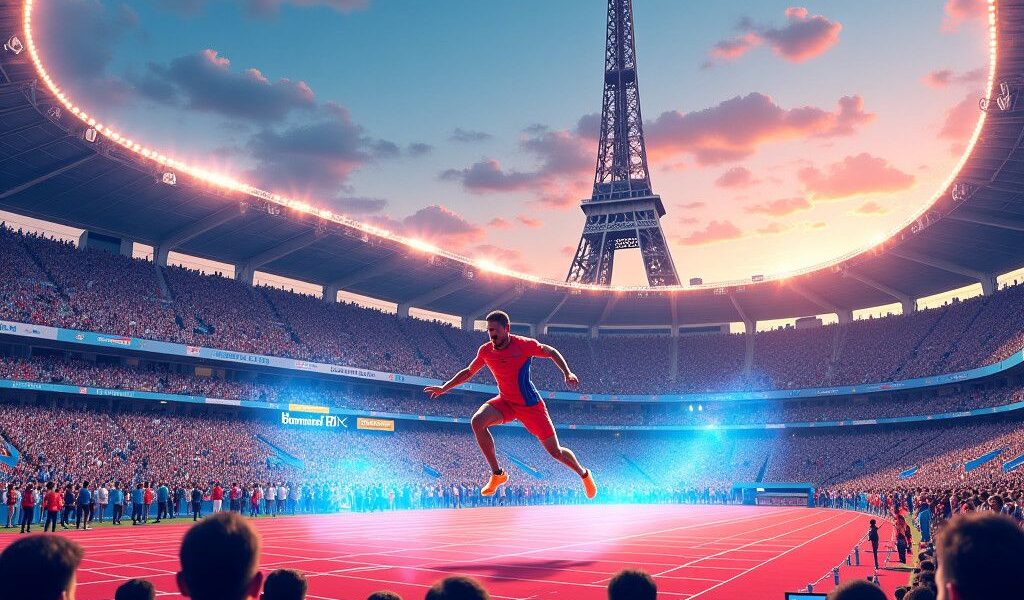AI Revolutionizes the 2024 Paris Olympics: A New Era of Efficiency and Safety
As the world eagerly anticipates the 2024 Paris Olympics, it becomes clear that this event will not only showcase athletic prowess but also highlight cutting-edge technology. Artificial intelligence (AI) is set to play a pivotal role, transforming how the games will unfold. From enhancing athlete safety to optimizing energy management, the integration of AI is a game changer.
Athlete Protection: A New Standard in Safety
One of the most promising applications of AI in the Olympics is in the area of athlete protection. AI technologies are being devised to monitor the physical health and performance of athletes in real-time. For instance, wearable devices equipped with AI algorithms can analyze heart rates, body temperature, and fatigue levels during training and competition. This kind of monitoring can alert coaches and medical teams if an athlete exhibits signs of distress or injury, allowing for timely interventions.
An example of this innovation is the use of AI-driven analytics by USA Swimming, which has implemented tools that compute and predict athletes’ performance metrics and identify potential overtraining. Such data empowers trainers to adjust training programs on the fly to ensure athletes do not exceed their physical limitations.
Energy Management: Sustainable Olympics
Running such a massive event requires significant energy, which raises concerns about sustainability. AI is serving as a solution by optimizing energy usage across venues. Smart sensors and AI algorithms can analyze energy consumption in real-time, ensuring that only necessary resources are used. For example, AI can optimize lighting and climate control systems within sports arenas, minimizing energy waste while maximizing comfort for athletes and spectators alike.
The Paris Games organizers have partnered with various tech companies to utilize predictive analytics, anticipating energy demand patterns during the events. By forecasting these patterns, they can better manage energy distribution, aligning it with peak times to reduce costs and lower their carbon footprint.
Enhanced Audience Engagement
AI’s influence extends beyond athlete and energy management to how fans engage with the Olympic Games. An innovative application of AI lies in the development of personalized viewing experiences. Using data analytics, organizers can tailor content to individual viewers based on their preferences and viewing history. For instance, fans could receive customized highlights or real-time updates about their favorite athletes through smart apps.
Virtual and augmented reality experiences powered by AI are also on the rise. These technologies will allow fans to immerse themselves in the Olympic experience like never before. Viewers can partake in virtual arenas, simulating front-row seats to the events, and even utilizing AI-generated commentary tailored to their interests.
Improving Logistics with AI
Efficient event management is crucial in an international setting such as the Olympics. AI plays a key role in streamlining logistics, from transportation to crowd management. Predictive modeling, powered by AI, assists in anticipating crowd sizes at various venues, allowing for better allocation of resources and personnel.
For example, AI can enhance transportation systems by analyzing traffic patterns and predicting potential delays. This data-driven approach facilitates smooth transportation for athletes and spectators alike, ensuring everyone arrives on time. Additionally, AI can optimize staff deployment across venues, ensuring that sufficient personnel are available where they are needed most, from security to customer service.
Wrapping Up
The integration of AI into the 2024 Paris Olympics marks a significant step towards a more technologically advanced, safer, and sustainable Olympic experience. By focusing on athlete protection, energy efficiency, enhanced engagement, and seamless logistics, the Paris Games are poised to set a precedent not just for future Olympic events but for all major international sports competitions.
As we look forward to this monumental sporting event, it is clear that the world of athletics will never be the same again. The 2024 Olympics may very well be remembered as the year technology and sports coalesce in ways previously unimaginable.








